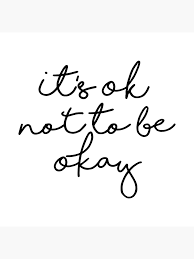Good morning, Prep School family,
I hope you are well and are relaxed from a super weekend. I had a great weekend – friends, family, food, reading, gardening (yes me gardening!) and some sunshine thrown in – what could be better.
As I write this, school is very quiet – it must be the shock of being in school on a Monday! I have just waved our Year 6 pupils off on their amazing adventure of a week-long residential trip in Wales. They will have the best time ever and make so many life long memories. I cannot wait for them to arrive back on Friday and see their faces. They will be very tired and very, very dirty but full of brilliant tales to tell about the wonderful, life enhancing experiences that they have had this week. Mr Greenfield, Mr Landers and Mrs Carter will have a fantastic time too and are very privileged to be experiencing this trip with the Year 6’s but no doubt on Friday evening a hot shower, an adult beverage and a night of interrupted sleep will be top of their priority list!
So this week is national Mental Health Awareness Week and the theme is anxiety. Anxiety is a normal emotion in us all, but sometimes it can get out of control and become a mental health problem. Lots of things can lead to feelings of anxiety, including exam pressures, relationships, starting a new job (or losing one) or other big life events. We can also get anxious when it comes to things to do with money and not being able to meet our basic needs, like heating our home or buying food. But anxiety can be made easier to manage.
Focusing on anxiety for this year’s Mental Health Awareness Week will hopefully increase people’s awareness and understanding of anxiety by providing information on the things that can help prevent it from becoming a problem.
What is anxiety?
Anxiety can affect us physically and mentally. If you are feeling anxious, you might notice your heart rate increasing, headaches, loss of appetite, breathlessness or chest pain. Anxiety might make you feel tense or nervous, find it hard to relax, feel tearful or have problems sleeping and concentrating. Friends or family might notice you are more irritable than usual, or more withdrawn. Or perhaps you seem fine on the outside but feel panicky inside.
It is ok to feel like this at times, as we have said before, anxiety is a completely normal emotion. However, if you are feeling you cannot cope – it is ok help is at hand. There are things that we can all do to protect our mental health and manage anxiety.
What works will be different from person to person. Things that might be helpful include being active, getting out in nature, practising breathing techniques, getting support to tackle money worries or eating well. Talking to a friend, or spending time with loved ones, is often a good first step. Having a laugh always makes me feel less anxious. If we don’t know how to cope with our feelings of anxiety, they can get out of control and stop us from doing the things we need or want to do. The more often and the longer we feel anxious, the more it can become a problem. Dealing with anxiety can be hard. The Mental Health Foundation have some ‘Top Tips’ to help us deal with these emotions:
- Focus on your breathing
When you’re having anxious thoughts try focusing on your breathing, concentrating on the feeling of your body as you breathe in and out. It can help you control the thought.
4-7-8 breathing technique
Close your mouth and quietly breath in through your nose, counting to four in your head. Hold your breath and count to seven. Breathe out through your mouth, making a whoosh sound while counting to eight. Repeat three more times for a total of four breath cycles.
Some people find relaxation exercises work too, while others find practising mindfulness useful.
- Get moving
Exercise is a good way of dealing with anxiety. Remember, activity doesn’t have to be vigorous; try some gentle stretches, yoga, or seated exercises. Or just go for a walk. Going for a run, swimming, or taking part in a fitness class can give you something else to think about. It needs a bit of concentration, so takes your mind of the anxious thoughts. Any amount of exercise will help.
- Keep a diary
It’s important that we don’t try to ignore our worries. Taking the time to keep a record of what’s happening in your life and how it’s affecting you can help you understand what is triggering your feelings of anxiety. Knowing this can help you better prepare for and manage situations that may cause anxiety. Sometimes it helps to give yourself a certain time of day to be your ‘worry time’. It could be half an hour first thing in the morning for to sit with your worries and write them down in your diary. When that’s out of the way, you can move on with the rest of your day. This can help you take control and stop anxiety getting in the way of what you want to do.
- Challenge your thoughts
Anxiety can lead us to think about things over and over again in our brain. This is called ‘rumination’ and it’s not helpful. When you catch yourself ruminating try to write down the thought and to challenge it. Is what you’re worrying about likely to happen? Are you being realistic? Have you had similar thoughts which have not turned into reality? This can make it easier to challenge the thoughts and stop them from overwhelming you.
- Spend time in nature
We know that spending time in nature has a positive impact on our mental health. It can help us feel calmer and less stressed. This can be as simple as tending some flowers in a window box or going for a walk in the woods. Any amount of time doing this is good for us, but to really get the benefit, try to spend a significant period of time – maybe an hour or longer – when you can really connect with nature and immerse yourself. Listen to the birds, feel the wind in your face, walk in the rain. . .just go outside! Year 6 will be doing plenty of this this week!
- Connect with people and talk about how you feel
Anxiety can feel very lonely. Connecting with other people can help a lot. Spend time with friends or meet other people through activities such as volunteering, sport or social clubs, or peer support groups. If you’re able to talk to people about how you feel, it can help to reduce your anxiety. Sometimes saying what’s worrying you out loud can take away its power over you. There is a lot to be said for sharing a pot of tea and your worries with a friend.
- Try to get some quality sleep or rest
Resting and having a good night’s sleep is hard when your head is full of worries but there are some things that can help. If anxious thoughts keep you awake, write them down in your diary. If sleep is still not coming, get up and have a drink (nothing with caffeine!) and wait until you’re feeling more tired before going back to bed. Keeping a note in your diary of your sleep patterns, what time you went to bed, what you ate, how often you woke up etc. can help you work out a routine that will help you get better quality sleep.
- Try to eat a healthy diet
For many of us, feeling anxious might cause us to reach for sugary snacks, junk food or adult beverages. It’s important that we don’t turn to unhealthy foods or drinks as a way to cope as they will do more damage in the longer term. Eating healthy food regularly helps us to regulate our blood sugar and gives us the energy we need to live well. Remember caffeine in coffee, tea and fizzy drinks can affect your mood and cause sleep problems so it’s best to have these in moderation and not too close to bedtime.
Quote of the week: “It’s ok not to be ok”
Well-being tasks for this week: Meaningful May.
This month is all about us belonging to, and being part of, something bigger and all of the ways that we can connect with, and make a difference to, the world.
Tuesday 16 May – Show gratitude to people who are trying to make things better
Wednesday 17 May – Find a way to make what you do today valuable
Thursday 18 May – Send a hand written note to someone to show that you care
Friday 19 May – Reflect on what makes you feel valued
Saturday 20 May – Share a photo with a loved one and tell them why it is so special to you
Sunday 21 May – Go outside and connect with nature
Monday 22 May– Can you think of a way to help a charity that you care about
Jokes of the week:
How do bees get to school?
By school buzz…
How do the fish get to school?
By octobus!
What does a gorilla learn in school?
His Ape B C’s.
What does a snake learn in school?
Hiss-tory.
Why is 2+2=5 like your left foot?
It’s not right!
Sleeps til Santa: 222 sleeps til Santa
5 things that I am grateful for or looking forward to this week:
Can you try this simple exercise in gratitude and positivity?
- I am looking forward to getting out and into my garden at the weekend – there is a lot of tidying up to do!
- I am looking forward to hearing all about the Year 6 adventures this week.
- I am looking forward to seeing an old friend on Saturday.
- I am grateful for the sunshine this weekend.
- I am grateful for the lovely lady in Starbucks who asked me if I was ok this morning as I was much earlier than usual picking up my Monday morning treat!
Take care of each other and have a super week. Remember to check in on your friends and make sure that they are doing ok, sometimes all people need is a friendly smile to make their days better. . .
Enjoy each day,
Mrs Bennett







